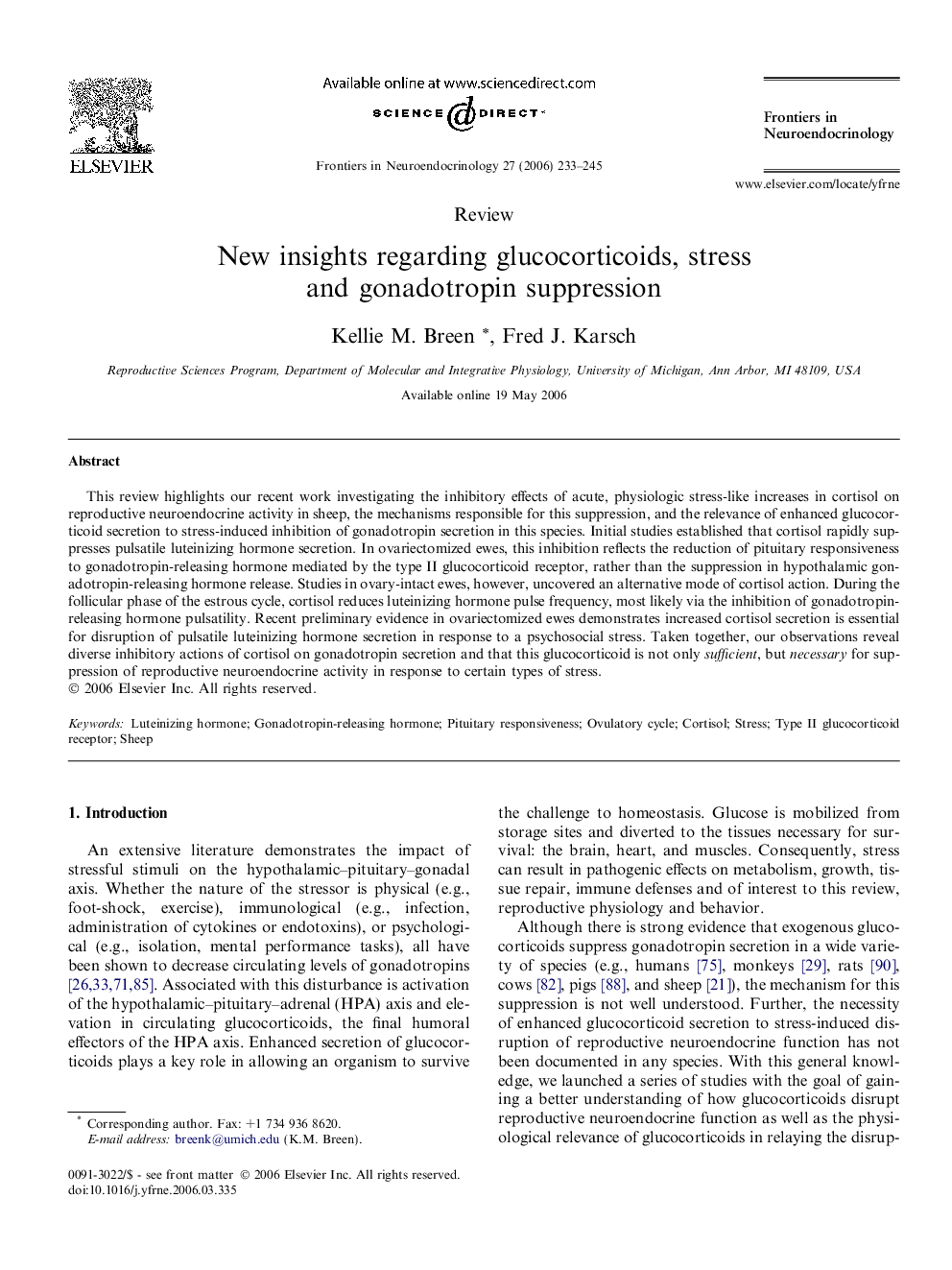| Article ID | Journal | Published Year | Pages | File Type |
|---|---|---|---|---|
| 2799572 | Frontiers in Neuroendocrinology | 2006 | 13 Pages |
This review highlights our recent work investigating the inhibitory effects of acute, physiologic stress-like increases in cortisol on reproductive neuroendocrine activity in sheep, the mechanisms responsible for this suppression, and the relevance of enhanced glucocorticoid secretion to stress-induced inhibition of gonadotropin secretion in this species. Initial studies established that cortisol rapidly suppresses pulsatile luteinizing hormone secretion. In ovariectomized ewes, this inhibition reflects the reduction of pituitary responsiveness to gonadotropin-releasing hormone mediated by the type II glucocorticoid receptor, rather than the suppression in hypothalamic gonadotropin-releasing hormone release. Studies in ovary-intact ewes, however, uncovered an alternative mode of cortisol action. During the follicular phase of the estrous cycle, cortisol reduces luteinizing hormone pulse frequency, most likely via the inhibition of gonadotropin-releasing hormone pulsatility. Recent preliminary evidence in ovariectomized ewes demonstrates increased cortisol secretion is essential for disruption of pulsatile luteinizing hormone secretion in response to a psychosocial stress. Taken together, our observations reveal diverse inhibitory actions of cortisol on gonadotropin secretion and that this glucocorticoid is not only sufficient, but necessary for suppression of reproductive neuroendocrine activity in response to certain types of stress.
